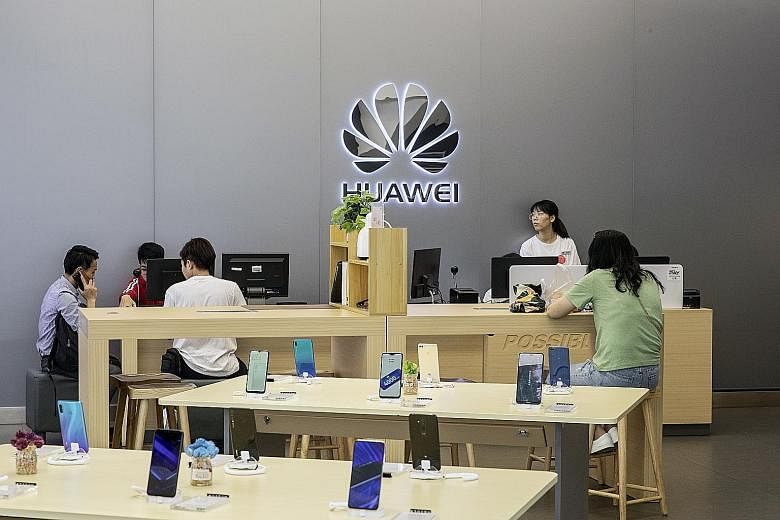May is ending with a far different outlook for investors from at the start of what has been a rocky month beset with trade tensions.
Equities had been rallying since the start of the year, following the fourth-quarter sell-off last year with traders pricing in an amicable resolution to the US-China tariff showdown. But all that changed when US President Donald Trump tweeted on May 5 about raising the tariff rate to 25 per cent for US$200 million (S$275 million) of Chinese imports, saying Beijing was reneging on certain aspects of the trade discussions.
The two economic giants have since traded blows on implementing tariffs on imports and with the US stepping up the pressure by blacklisting Huawei Technologies last week, the trade war has morphed into one centred on tech.
Singapore's Straits Times Index (STI) has dropped 223.44 points, or 6.5 per cent, and turned in three straight weeks of losses since Mr Trump's tweet. Perhaps, the adage of "sell in May and go away" will hold true this year.
"May's stock sell-off and uncertainty surrounding the next move in the US-China trade situation have increased market volatility. With the holiday season coming up, people will take a break and stay away from market," a trader said.
How much further will the Singapore market slide before trending upwards?
DBS Group Research equity strategist Joanne Goh acknowledged that local shares are "unlikely to be spared from volatility" with risks for more falls in the coming weeks". But she cited a number of factors supporting the market.
"Following the recent correction, Singapore is now the cheapest market within Asia, trading at less than minus-one standard deviation away from average, and has the highest dividend yield," she noted.
With most companies having already reported earnings for the first three months of the year and major economic data already out, it will be a relatively quiet week for Singapore with last month's bank lending and money supply numbers out on Friday.
In China, regional investors will be looking to official manufacturing and non-manufacturing purchasing managers' index (PMI) surveys for May. China will also release industrial profits for last month today.
FXTM market analyst Han Tan said Asian assets may be influenced by the China data releases.
"Further signs of a moderation in the world's second-largest economy may deal another blow to risk sentiment amid a backdrop of already heightened US-China tensions that threaten to further derail the global growth trajectory," he added.
IG market strategist Pan Jingyi noted that if expectations of a contraction in manufacturing are met, "it will end the two-month streak where the PMI had returned to expansion".
The end of the month also brings the usual deluge of economic data releases in Japan. These include last month's unemployment rate and May numbers on inflation, retail sales and industrial production.
Other key Asian data will include first-quarter GDP in India and Thailand's trade figures last month.
The Bank of Korea has a monetary policy decision on Friday. Four out of five analysts in a Bloomberg poll last week expect the bank to keep rates unchanged at 1.75 per cent while one tipped a 25-basis point rate cut.


